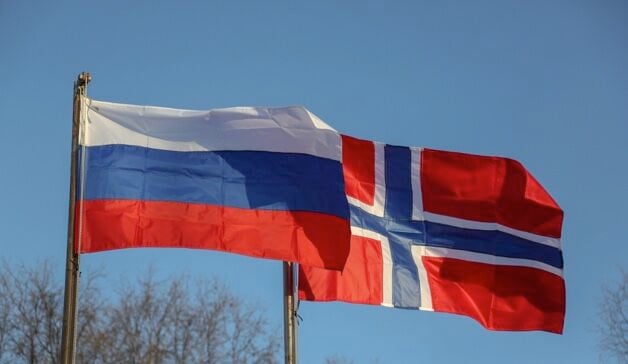Norway surpasses Russia in energy exports

Norway is now surpassing Russia in energy exports.
In a remarkable turn of events, a humble office building overlooking a fjord in Stavanger, Norway, now holds the key to European energy security. Here, the company Petoro oversees several of the continent’s largest oil and natural gas fields on Norway’s petroleum-rich continental shelf. This unassuming location has become central to Europe’s quest to keep the lights on amid rising tensions with Russia over the war in Ukraine.
As Russia scaled back natural gas exports last year, Norway ramped up production to help meet Europe’s energy needs. Fuelled by the escalating crisis in Ukraine, Norwegian oil and gas exports have soared, transforming the country into Europe’s primary energy provider.
Petoro CEO Kristin Fejerskov Kragseth commented on the shift: “The war and the whole energy situation has demonstrated that Norwegian energy is extremely important for Europe. We were always important, but maybe we didn’t realise it.”
The immense significance of this elevated status is not lost on Norway. A small country of just 5.5 million inhabitants, energy accounts for around a third of Norway’s economic output. Norway’s government, like the government of Saudi Arabia, not only owns the oil and gas fields, but also holds significant stakes in the companies extracting the natural resources. The war in Ukraine has contributed to an estimated $100 billion increase in Norway’s oil and gas earnings.
There are mixed feelings in Norway regarding this reliance on fossil fuels, Sunday Spotlight reports. Climate change and questions surrounding future petroleum exploration were central issues in the 2021 national election. However, the latest energy crisis seems to have led to a consensus that Norway should continue to produce large amounts of petroleum for at least the next few years.
Ulf Sverdrup, director of the Norwegian Institute of International Affairs, noted, “The war has changed the political sentiment. Basically, Europe said: ‘Hey! We need your energy.'”
Norway is not part of the European Union, but it maintains a close relationship with its neighbours. Following the outbreak of war in Ukraine, European leaders in Brussels and countries such as Germany, which had become heavily reliant on Russian gas, turned to Norway for assistance. The Norwegian government promptly authorised increased gas production levels to help its allies.
Energy companies in Norway managed to boost gas production at the expense of oil, leading to an 8% increase in gas output. As a result, Norway now supplies around a third of the natural gas consumed in Europe.
The financial benefits of Norway’s elevated status in the energy world have been staggering. Petoro earned roughly $50 billion in 2022, nearly triple its 2021 earnings. Equinor, Norway’s state-controlled energy producer, reported record adjusted earnings of $75 billion. Government estimates suggest that oil and gas revenues added $125 billion to the Norwegian state in 2022, approximately $100 billion more than in 2021.
These huge profits have filtered into Norway’s $1.3 trillion sovereign wealth fund, otherwise known as the “oil fund.” This fund holds an average stake of 1.5% in around 9,000 listed companies across the globe, allowing the government to dip into its annual earnings to finance almost 20% of the national budget. The fund’s existence helps protect Norway’s economy, which grew 3.3% in 2022, from fluctuations in oil and gas prices.
The additional revenues have breathed new life into cities like Stavanger, where many jobs are closely linked to the energy industry. Nevertheless, tensions persist as environmental groups argue that Norway’s increased fossil fuel production is out of step with efforts to combat climate change.
Frode Pleym, head of Greenpeace in Norway, expressed concern over the situation: “Norway is locking Europe into what is really a problem for the climate.”
Norway’s newfound position as Europe’s energy lifeline has significantly reshaped the continent’s energy landscape, but at what cost? As the war in Ukraine rages on and European nations become increasingly reliant on Norway’s resources, the long-term environmental implications of this relationship remain uncertain.
Latest Thailand News
Follow The Thaiger on Google News:


























